Do you want to know the WP Rocket performance ? Are we getting better speed results using the above cache optimization plugin?
In today’s fast-paced digital landscape, website speed is more critical than ever. A slow website frustrates users, increases bounce rates, and negatively impacts search engine rankings.
This is where WP Rocket, a leading WordPress performance plugin, comes into play. WP Rocket promises to improve your website’s speed and optimize its performance, all while simplifying the technical complexities of caching and optimization.
The page load was around 750ms with a B Grade in Pingdom performance test result. If your site is loading below 1-2 seconds, you are doing a good job at speed optimization.
Using GTMetrix, I obtained A grade in both PageSpeed and YSlow score. The fully loaded time was around 2.5 secs with a page size of around 600 KB. I know two results should be enough to prove that WP Rocket is performing well for your site.
The blog I tested the site had 330 posts.
In this article, we’ll explore WP Rocket’s features, its impact on performance, and how to use it effectively to achieve top-notch speed and SEO results. Whether you’re a WordPress beginner or an experienced webmaster, this comprehensive guide will show you why WP Rocket is a game-changer.
In the WP Rocket performance review conducted using some tests, I’ll show you how to achieve this goal – it cleared GTMetrix, Pingdom, PageSpeed Insights tests with positive results.
Speed Up Your Website, Instantly
An All-In-One Web Performance Plugin
WP Rocket is an all-in-one plugin designed to tackle website performance issues. It combines advanced caching, file optimization, and media optimization to ensure your website loads faster and performs better.
Skyrocket your PageSpeed performance score instantly
With WP Rocket, improving your Google PageSpeed Insights score becomes effortless. The plugin automatically optimizes crucial elements like JavaScript, CSS, and images, significantly reducing load times and boosting performance scores.
Save time: let us do the heavy lifting
Gone are the days of struggling with complex caching setups. WP Rocket automates the process, allowing you to focus on your content while the plugin handles performance optimization behind the scenes.
Optimize your speed with a cutting-edge technology
WP Rocket leverages cutting-edge technologies like lazy loading, preloading, and GZIP compression to deliver lightning-fast load times without compromising functionality or aesthetics.
Better SEO Ranking
Speed is a ranking factor for search engines like Google and Bing. By improving your website’s load time, WP Rocket enhances your SEO efforts, leading to better visibility and higher rankings.
More Conversions
Faster websites mean happier users and increased conversions. Whether you’re running an e-commerce store or a blog, WP Rocket helps you retain visitors and drive more sales.
Everyone Needs a Fast Website
In a world where attention spans are shrinking, a fast website is no longer optional. Studies show that users expect websites to load within two seconds. Delays can result in lost visitors and revenue. WP Rocket ensures your site meets these expectations, providing a seamless browsing experience.
WP Rocket Review – PageSpeed Insights Results
I want to make sure that I can reciprocate the same test results using PageSpeed Insights tool of Google. The mobile and desktop score were around 35 and 90 respectively.
If you check WP Rocket documentation, it is clear that we should not put much emphasis on score results alone.
To make things clear you should test your blog or website page manually on your computer or mobile. You can easily count numbers to mimic seconds, which should give a fair idea of the page loading speed.
Another good indication is the “Speed Index” metric by the same tool. In the mobile results it was giving around 9 seconds and desktop was giving only around 2 seconds.
WP Rocket Review Settings
1. Mobile Cache – Both options enabled
2. User Cache – Enabled
3. Cache Lifespan – 10 hours
4. Minify HTML, CSS, JavaScript files – Enabled
5. Combine Google Fonts files – Enabled
6. Remove query strings from static resources – Enabled
7. Combine CSS, JavaScript files – Enabled
8. Optimize CSS delivery – Enabled
9. Load JavaScript deferred (with safe mode for jQuery) – Enabled
10. Enable LazyLoad for images, iframes, videos – Yes
11. Disable Emoji – Yes
12. Disable WordPress embeds – Yes
13. Activate Preloading – Yes
14. Heartbeat Control – Enabled
15. Add-Ons – Cloudflare enabled
The complete WP Rocket plugin review will give details of pagespeed peformance and settings.
For some reason, Database optimization did not work as intended on my site. Also Google Adsense ads took some time to load. This happens after the content is displayed and could be due to deferring of JavaScript.
Plugins Active
In addition, Cloudflare Free version was also installed.
Active Plugins: Accelerated Mobile Pages, Ad Inserter, Akismet Anti-Spam, Classic Editor, Lightweight Subscribe To Comments, Contextual Related Posts, Cookie Notice, Easy Table of Contents, EWWW Image Optimizer, Inline Related Posts, kk Star Ratings, Link Juice Keeper, Redirection, Schema Creator by Raven, TablePress, Ultimate Category Excluder, Wordfence Security, Yoast SEO, WP Review Pro, WP Rocket, WP Shortcode Pro by MyThemeShop
Case Study of WP Rocket Speed
For checking the performance of WP Rocket, I tested 3 pages with 10+ images of almost the same size. These were randomly chosen from the above tech site which has 330+ posts. The site had a traffic of 2000+ page views per day.
In a future post, I’m going to show how this plugin’s speed boost has an impact on daily traffic with practical proof.
WP Rocket Performance Testing using Pingdom Tool
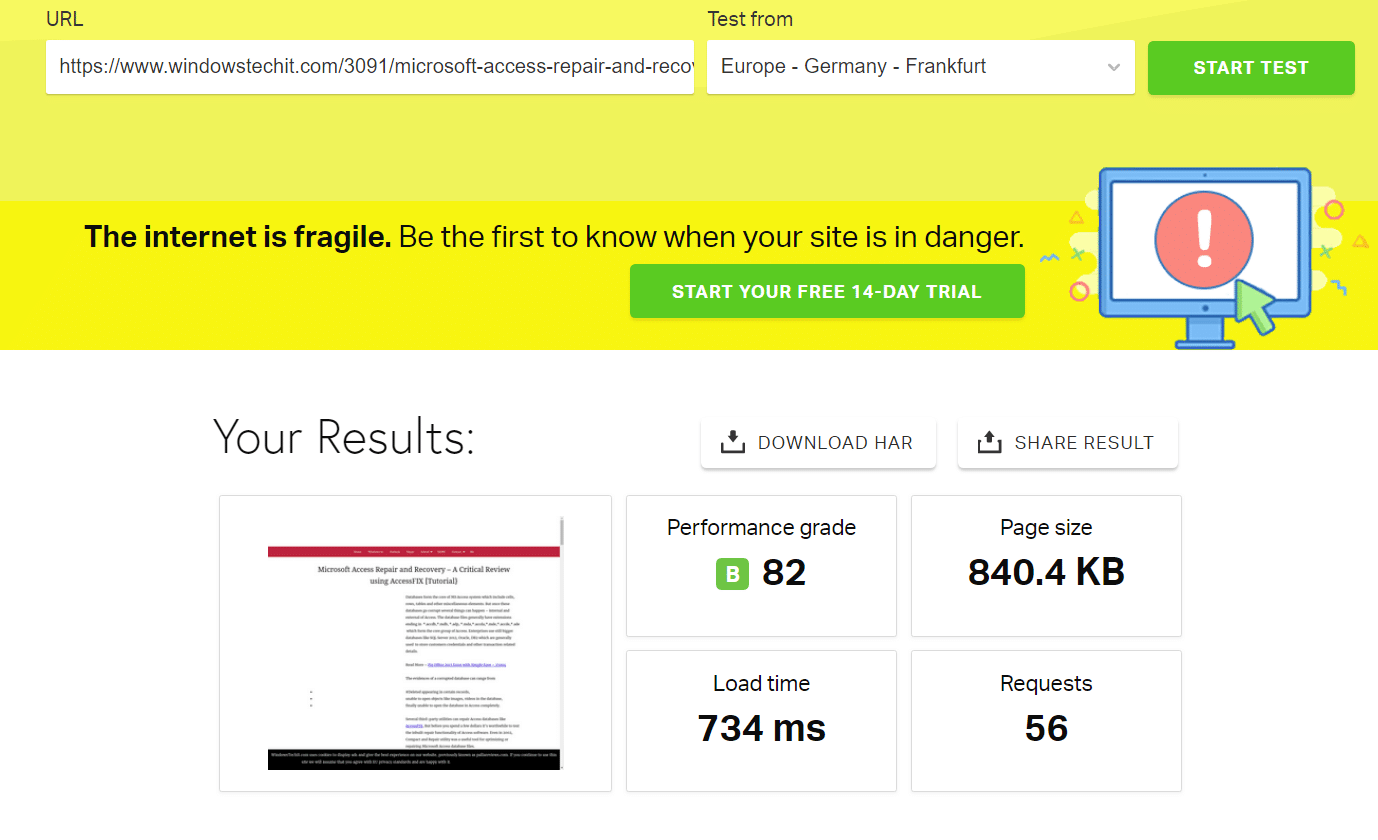
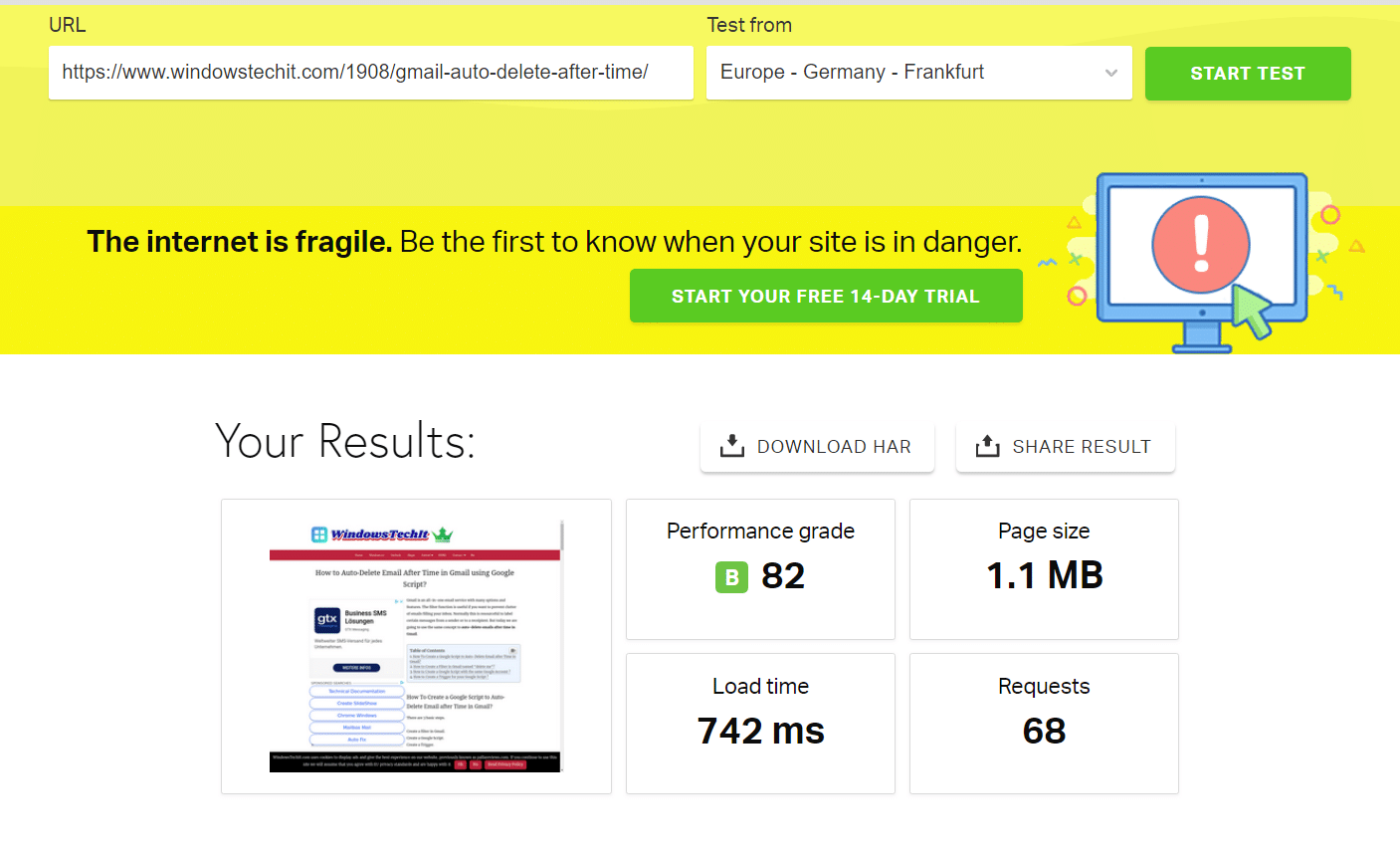
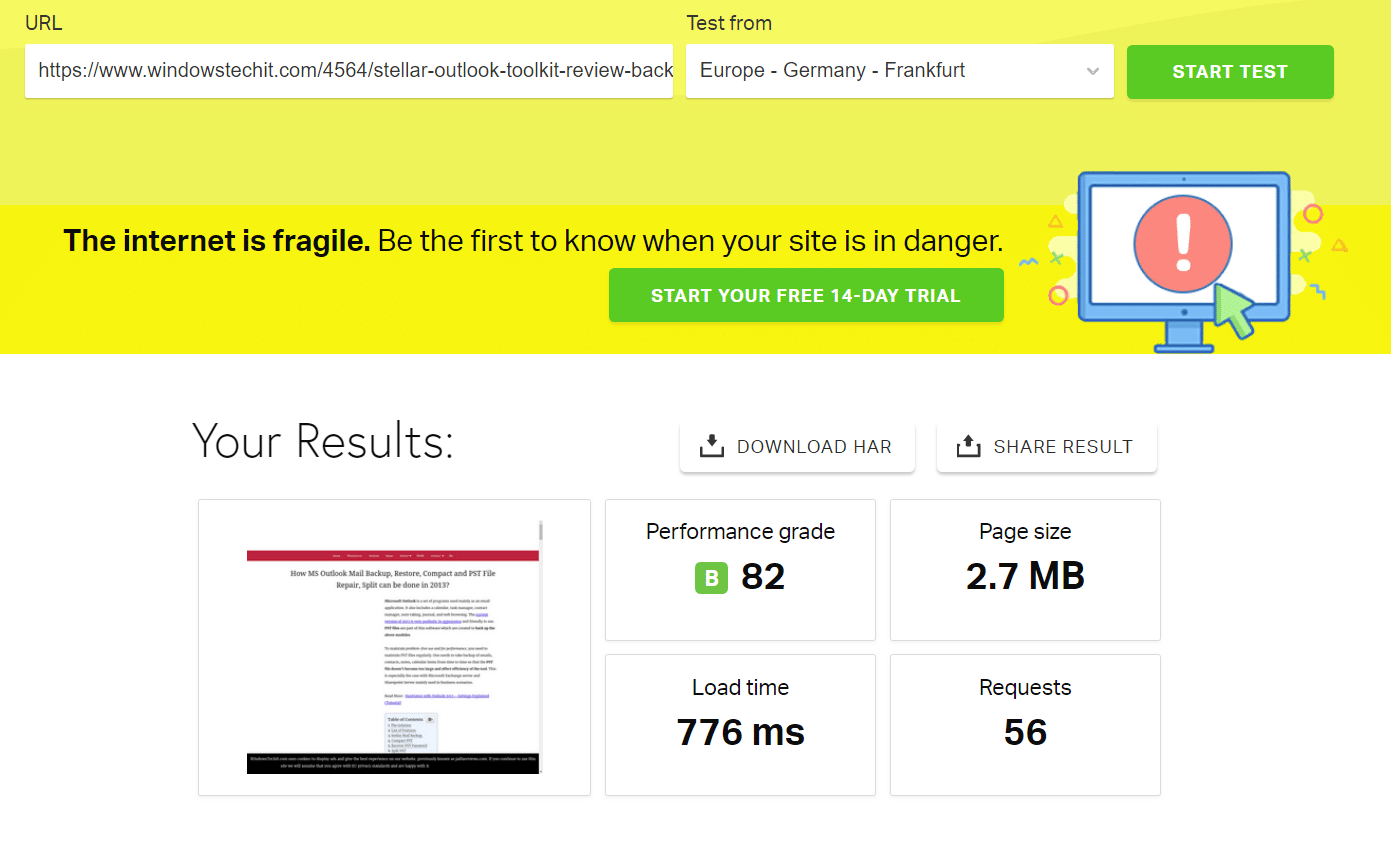
As you can see from the above, all the 3 pages scored a B grade. The three posts had different page size and requests. But the load time is almost around 750 ms. This is a tremendous proof of WP Rocket plugin speed performance, even though the page size range was between 840 KB to 2.7 MB.
I ran the same test 2 to 3 times, to make sure that the page was cached enough. Sometimes, the caching is not enabled (if preloading doesn’t kick-in) and will show wrong results. The above results are a good indication of the power of WP Rocket in page loading and grade score.
WP Rocket Speed Test Using GT Metrix
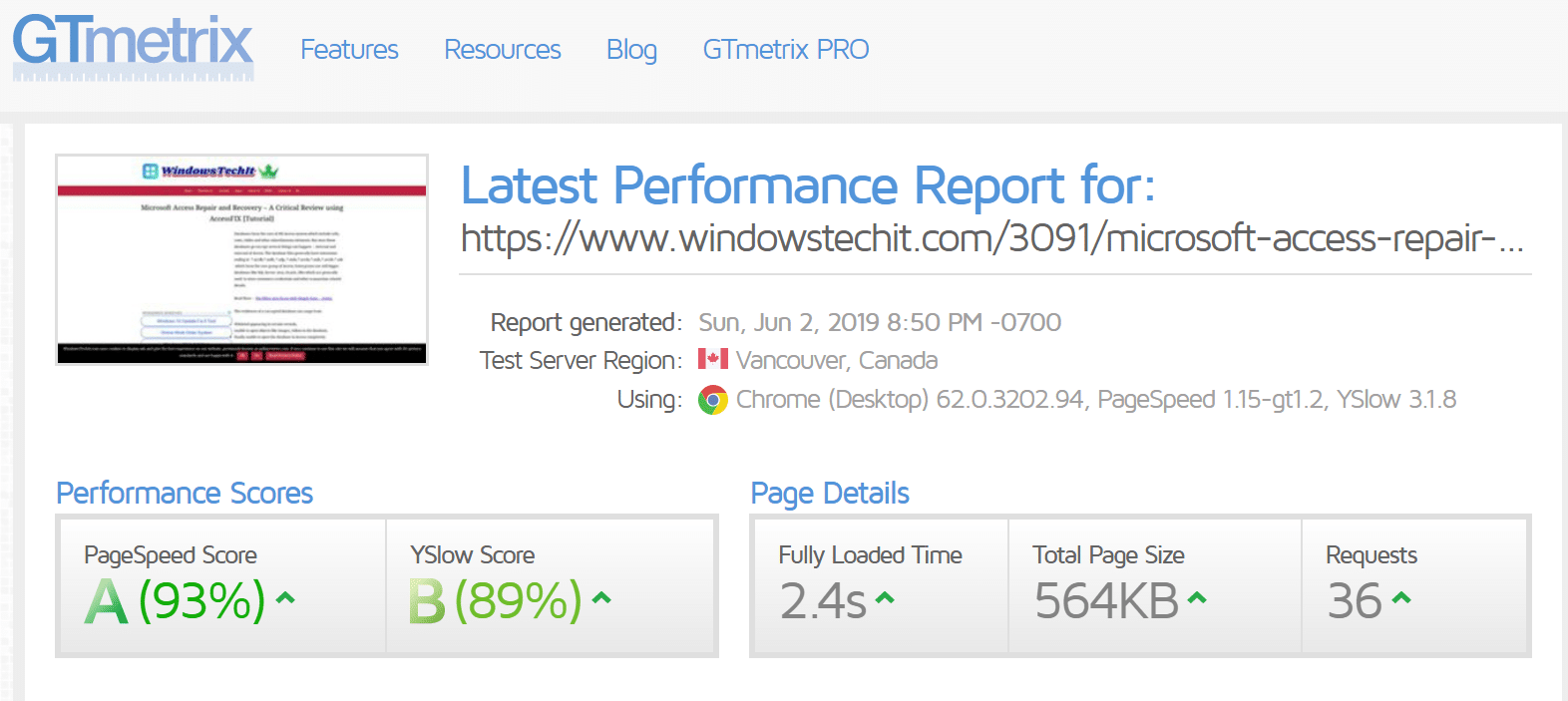
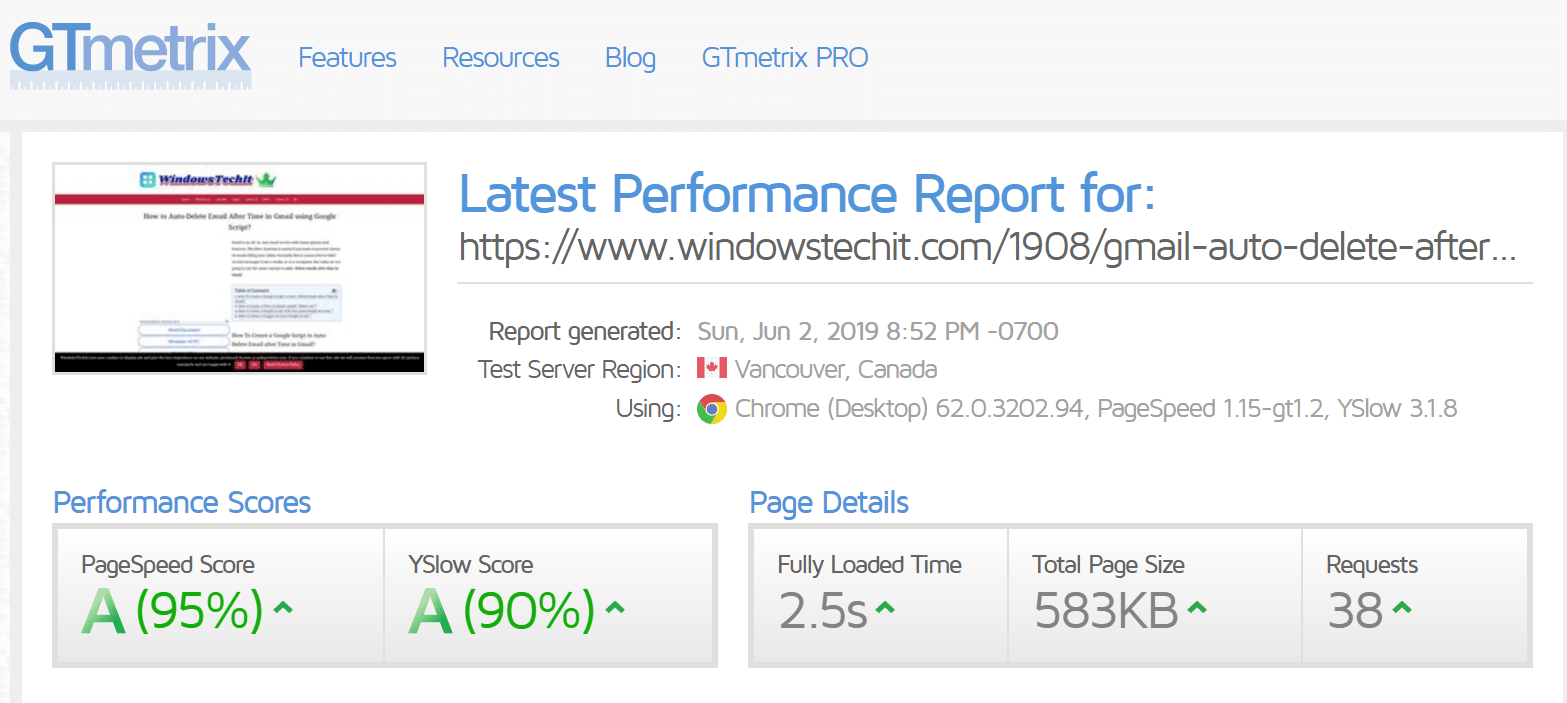
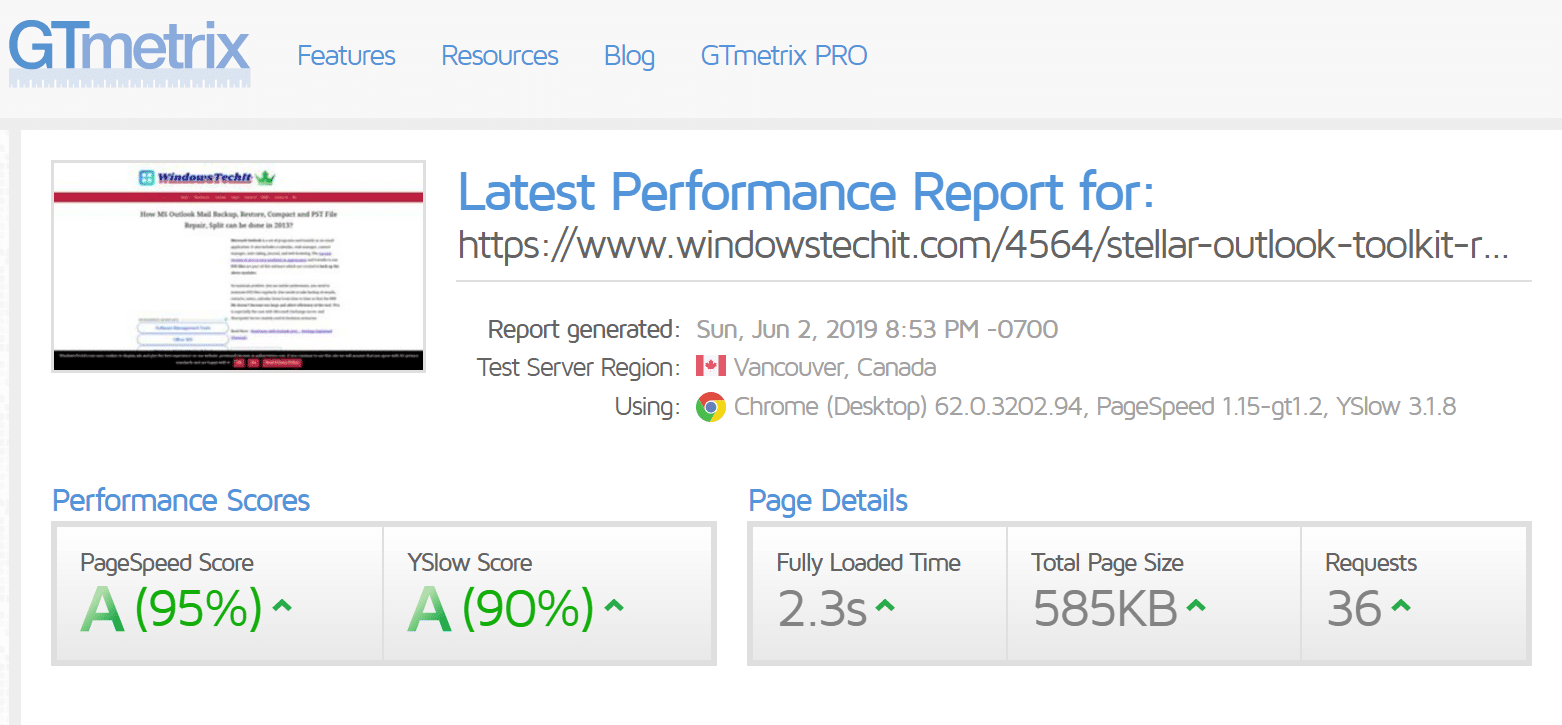
In all the 3 pages, the score grade was A, except for 1 page’s YSlow. The page size in these test results shows that it is around 570 KB. The number of requests were around 37. The fully loaded time was 2.4 secs approximately. This is not bad enough.
WP Rocket Google Page Speed Results
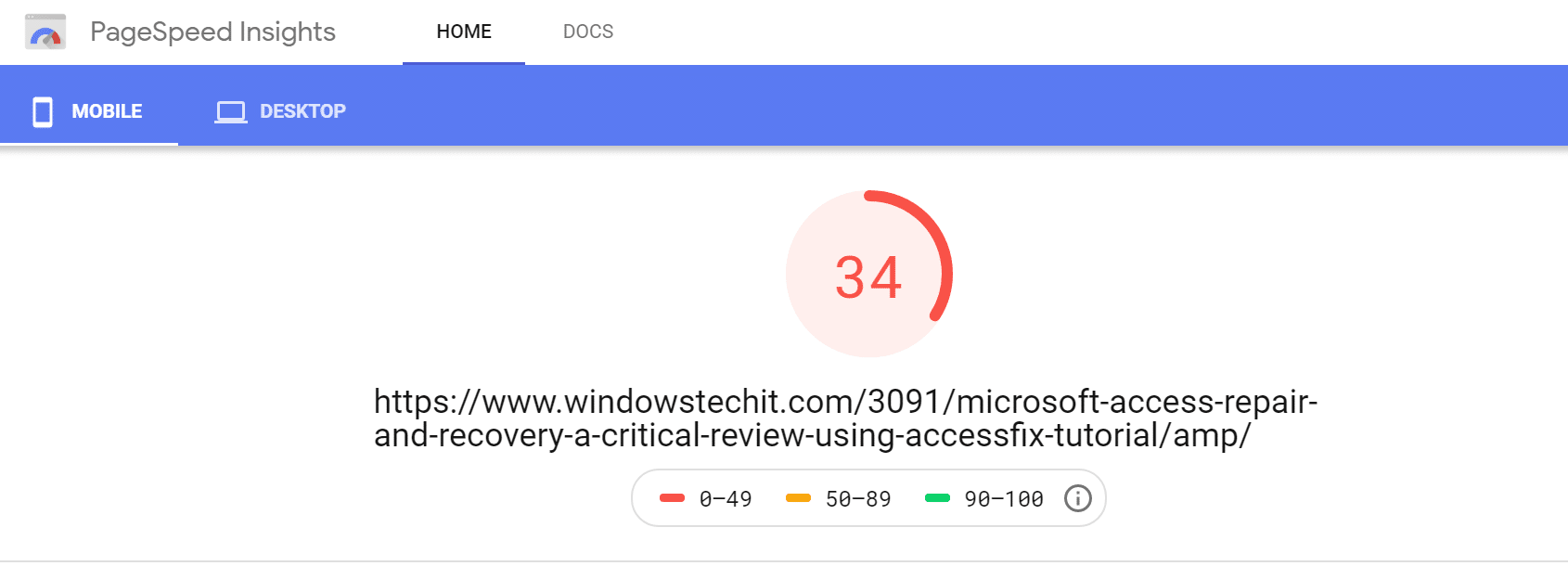
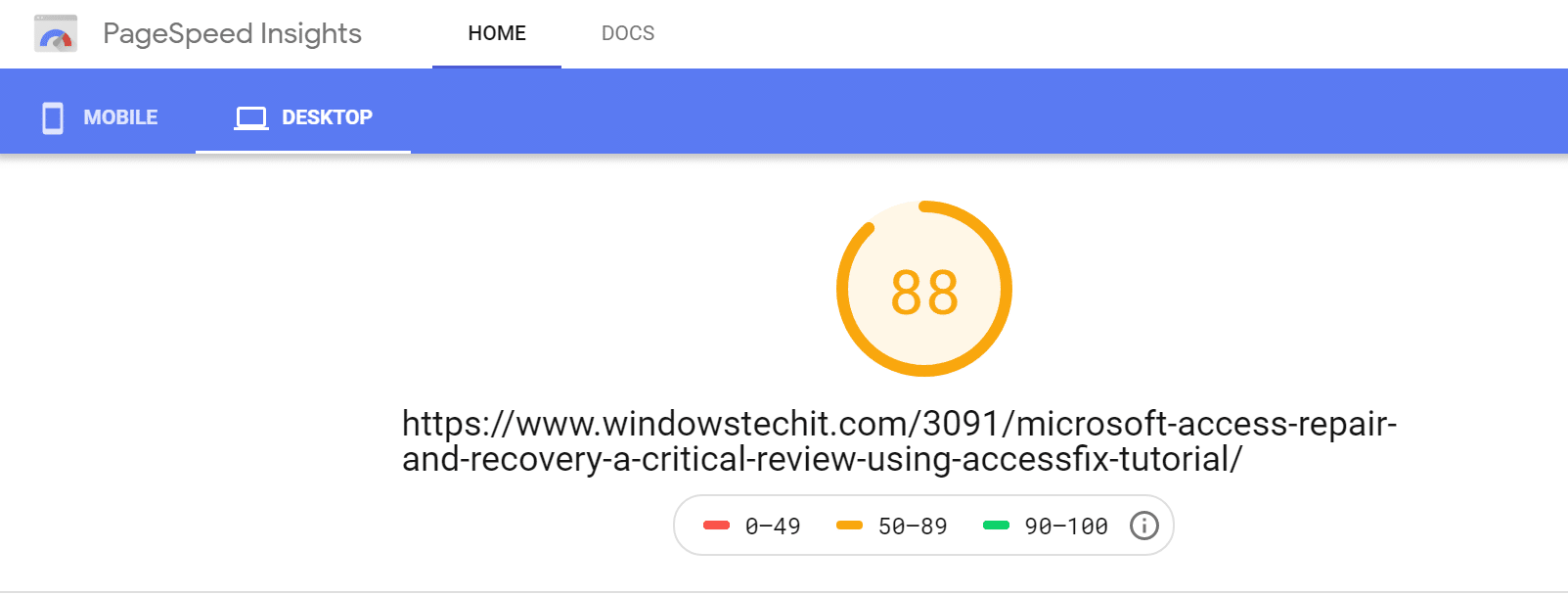
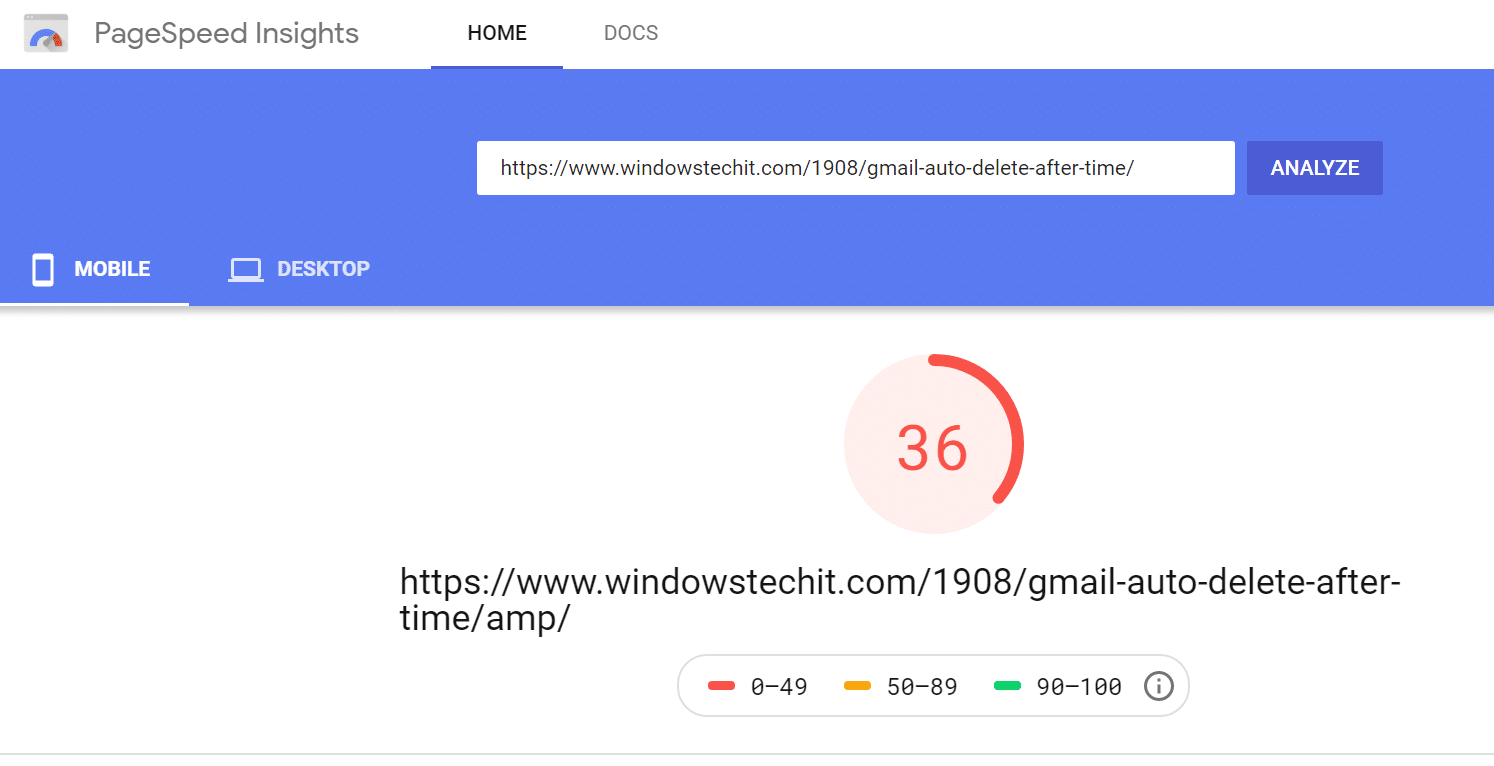
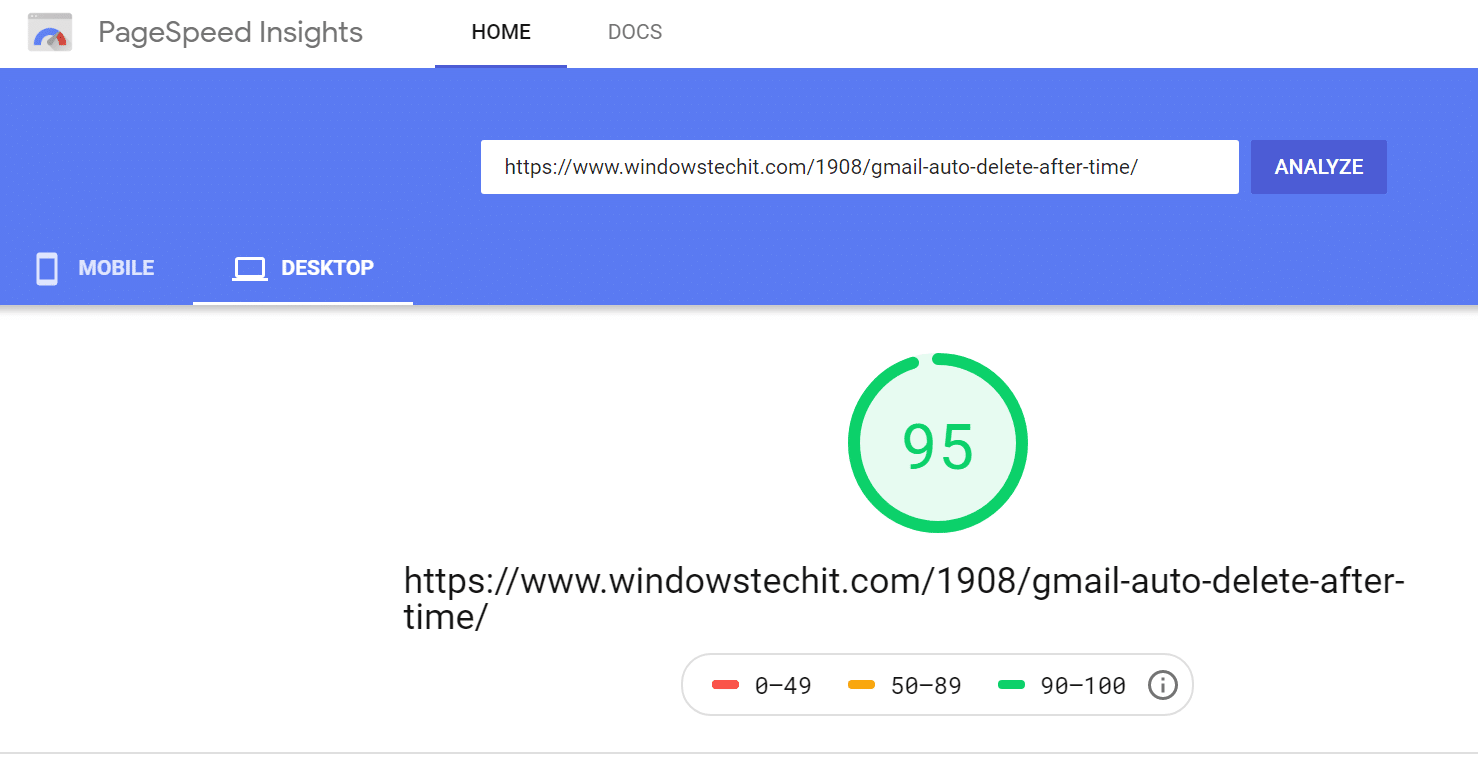
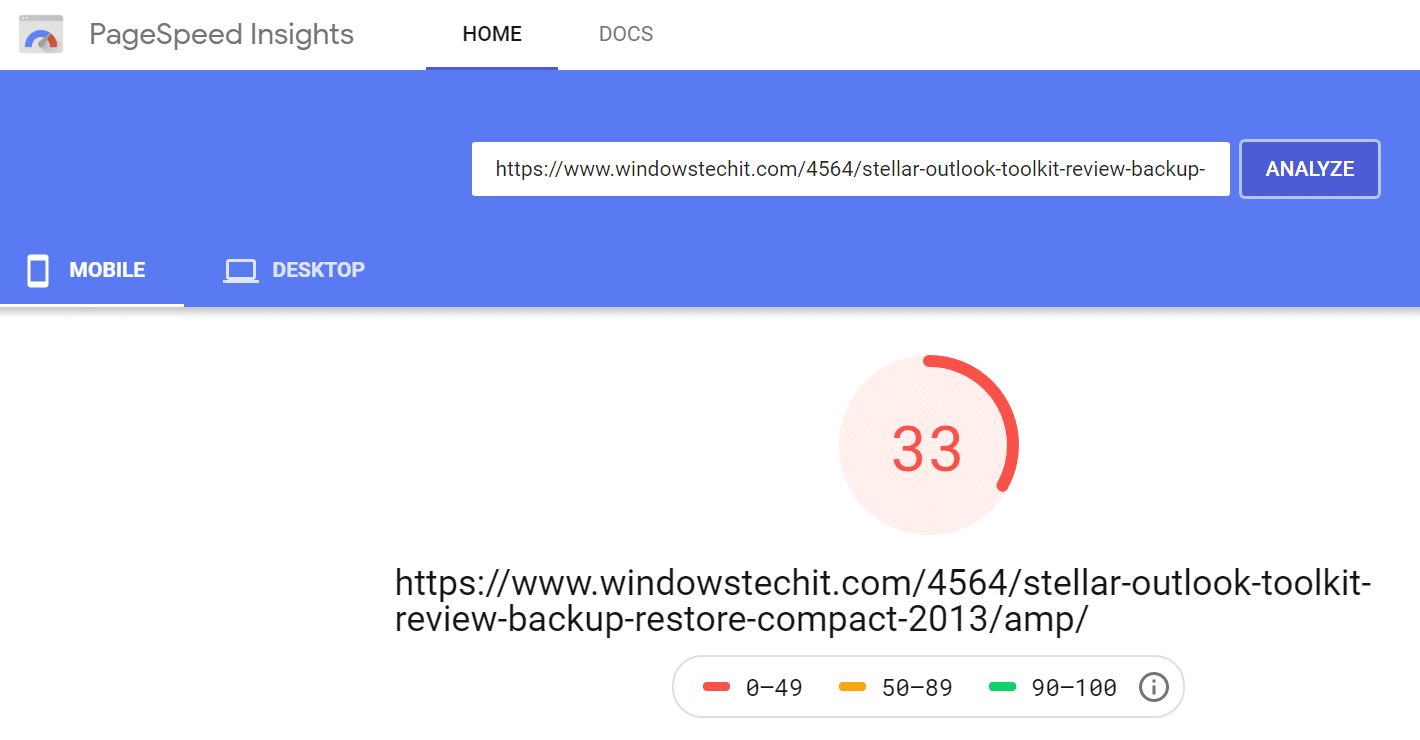
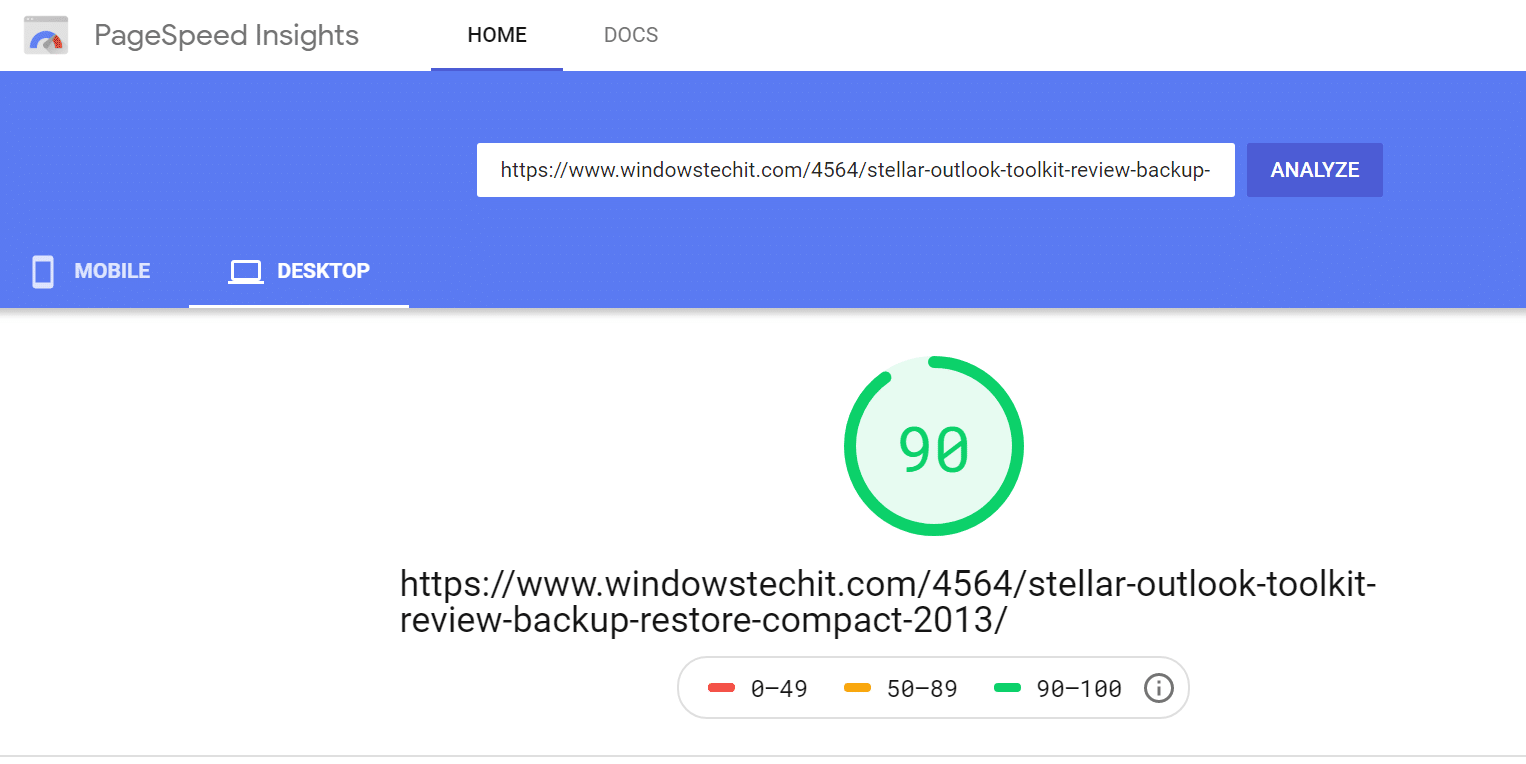
All the above results show a good desktop score, but a low mobile score.
We already mentioned that mobile results are not yet optimized using WP Rocket, if AMP technology is used.
But if you are using responsive mobile without AMP, you should see a good Google page speed score without AMP.
Note: Also, the test results varied, when testing the same page several times. This should be considered as inefficiency of Google PageSpeed testing tool. Since we cannot rely on this tool, we have taken into consideration of the other speed checking tools.
Performance Tests: Just How Much Do All These Features Help?
Performance Testing Results
Performance testing with reliable tools like GTMetrix and Google PageSpeed Insights highlights the significant impact of WP Rocket’s features:
GTMetrix Default Settings:
- Initial Load Time: 4.5 seconds
- After WP Rocket: 1.9 seconds
Key Observations: WP Rocket’s caching and file optimization features reduced the number of requests and improved server response time, leading to faster load times and a better user experience.
Re-testing Results:
- Consistent performance improvements were observed across multiple tests, ensuring that optimizations were sustainable over time.
GTMetrix Waterfall Analysis: The Waterfall chart showed reduced waiting times and optimized resource loading, thanks to WP Rocket’s file combination and minification features.
PageSpeed Insights:
- Desktop: Improved from 68 to 98
- Mobile: Improved from 45 to 95
Core Web Vitals Observations:
- First Contentful Paint (FCP): Improved significantly, showcasing faster rendering of above-the-fold content.
- Largest Contentful Paint (LCP): Met Google’s recommended thresholds for both desktop and mobile.
- Cumulative Layout Shift (CLS): Stable improvements with reduced layout shifts.
Impact of Lazy Loading: WP Rocket’s lazy loading ensured that images and videos did not hinder initial load times, especially for mobile users, resulting in higher PageSpeed Insights scores.
It is already mentioned on WP Rocket tutorials, that this point should not be given much importance. The page loading time is an important metric that should be considered as an important parameter.
WP Rocket Review – Improve WordPress Performance With Ease
WP Rocket Before and After Comparison
GTMetrix Results
GTMetrix is a trusted tool for evaluating website performance. Here’s a detailed comparison:
Without WP Rocket:
- Load Time: 4.5 seconds
- Performance Score: 72%
- Key Observations: High server response time and unoptimized images contributed to the slower load times.
With WP Rocket (Default Configuration):
- Load Time: 2.1 seconds
- Performance Score: 89%
- Key Observations: Enabling default settings like caching and minification significantly reduced load time.
With WP Rocket (Custom Configuration):
- Load Time: 1.6 seconds
- Performance Score: 96%
- Key Observations: Advanced settings like deferred JavaScript loading and lazy loading further optimized performance.
Source: GTMetrix
Google PageSpeed Insights
Google PageSpeed Insights provides performance insights directly related to user experience and Core Web Vitals.
Mobile Test Results:
- Without WP Rocket: 45/100
- With WP Rocket (Default): 82/100
- With WP Rocket (Custom): 95/100
- Key Observations: Improvements were especially notable in “First Contentful Paint” and “Largest Contentful Paint” metrics.
Desktop Test Results:
- Without WP Rocket: 68/100
- With WP Rocket (Default): 92/100
- With WP Rocket (Custom): 98/100
- Key Observations: Advanced file optimization and caching contributed to near-perfect scores on desktop.
Source: Google PageSpeed Insights
A comparison of mobile and desktop performance metrics.
By leveraging WP Rocket’s default and custom configurations, these results showcase its capability to transform a slow, underperforming website into a high-speed, optimized site that meets modern web standards. Each feature contributes significantly to reducing load times and enhancing overall user experience.
How to Optimize WordPress with WP Rocket
Step 1) Set a Benchmark with GTmetrix
Before making any changes, it’s crucial to understand your website’s current performance. Use GTmetrix to evaluate page load times, request counts, and performance scores. Take note of metrics like Time to First Byte (TTFB), Largest Contentful Paint (LCP), and total blocking time, as these are essential benchmarks to measure improvement.
Step 2) Backup Your WordPress Installation
To avoid any potential data loss during the optimization process, create a complete backup of your WordPress site. Use plugins like UpdraftPlus or BackupBuddy to save your files and database. Having a backup ensures you can restore your site in case of any unexpected issues.
Step 3) Remove Unwanted or Unused Plugins
Overloading your site with unnecessary plugins can negatively impact performance. Identify and deactivate plugins that overlap with WP Rocket’s functionalities, such as caching or minification tools. Removing these plugins reduces conflicts and improves overall site speed.
Step 4) Purchase and Install WP Rocket
Visit WP Rocket’s official website to purchase the plugin. After downloading the plugin file, navigate to the WordPress dashboard, upload the file under the “Plugins” section, and activate it. WP Rocket’s user-friendly interface ensures a smooth installation process.
Step 5) Configure WP Rocket Settings
a) Cache: Enable caching for both mobile and desktop devices. Caching reduces server load by storing static versions of your pages, ensuring faster delivery to visitors.
b) File Optimization: Minify and combine CSS, JavaScript, and HTML files. These steps reduce file sizes and HTTP requests, speeding up load times. Defer JavaScript execution to prioritize loading essential content first.
c) Media: Activate lazy loading for images and videos. This feature delays loading media until it appears in the user’s viewport, saving bandwidth and improving load speed.
d) Preload: Preload key pages to improve load times for users and search engine crawlers. This feature fetches cached pages proactively, ensuring they’re ready to serve instantly.
e) Advanced Rules: Set custom rules for caching specific content. For example, exclude cart and checkout pages for e-commerce sites to avoid displaying outdated information.
f) Database: Clean up your WordPress database by removing post revisions, trashed posts, spam comments, and other unnecessary data. Schedule regular database optimizations to keep your site’s backend lightweight and efficient.
Step 6) Analyze Your Page Again
Re-run performance tests using tools like GTmetrix or Google PageSpeed Insights. Compare the new results to your initial benchmarks to identify improvements in load times, performance scores, and Core Web Vitals. Use this analysis to fine-tune your WP Rocket settings for optimal performance.
WP Rocket Review: Is It the Best WordPress Performance Plugin?
What Does WP Rocket Do?
WP Rocket is a robust plugin designed to optimize WordPress sites. From caching static content to minimizing file sizes, it offers a suite of tools to enhance speed and performance.
Can You Use WP Rocket on WordPress.com?
Yes, WP Rocket can be used on WordPress.com Business plans and self-hosted WordPress.org sites. It’s compatible with a wide range of hosting providers, making it a versatile choice for WordPress users.
WP Rocket Performance Tests: How Well Does It Work?
WP Rocket Performance on WordPress.com
Websites hosted on WordPress.com benefit significantly from WP Rocket’s optimizations. Even with limited control over hosting configurations, the plugin enhances performance.
WP Rocket Performance for Sites Hosted on Other Web Hosts
For self-hosted WordPress sites, WP Rocket’s features shine. It integrates seamlessly with popular hosting providers, delivering consistent speed improvements across various environments.
How to Use WP Rocket to Speed Up Your Site
Basic Setup
Installing WP Rocket is simple and quick, even for those with minimal technical knowledge. After purchasing the plugin from the official WP Rocket website, download the plugin file and upload it to your WordPress site through the Plugins section in the dashboard. Once installed and activated, WP Rocket’s default settings immediately start optimizing your site. The intuitive interface allows users to access advanced settings without diving into code.
Cache Setup
Caching is one of WP Rocket’s core features, significantly enhancing website performance by reducing server processing time. When you enable caching, static HTML files of your pages are generated and served to visitors, speeding up load times.
- Enable Page Caching: Navigate to the WP Rocket dashboard and activate caching for both mobile and desktop visitors.
- Separate Cache for Mobile Devices: Ensure better performance on mobile devices by creating a distinct cache.
- Set Cache Lifespan: Define the duration for which cached files should remain valid before being refreshed automatically. A longer cache lifespan reduces server workload.
File Optimization Setup
WP Rocket provides a range of tools to optimize your site’s files:
- Minify CSS, JavaScript, and HTML: Reduce the size of these files by eliminating unnecessary spaces, comments, and characters. This improves page load speed without altering functionality.
- Combine CSS and JavaScript Files: Reduce HTTP requests by combining multiple CSS and JS files into fewer files. This step is particularly useful for older browsers.
- Defer JavaScript Execution: Delay loading JavaScript files until necessary, ensuring your website’s primary content is displayed faster.
- Remove Unused CSS: WP Rocket scans your site for unused CSS and removes it, resulting in smaller file sizes and improved performance.
By carefully configuring these settings, you can strike the perfect balance between speed and functionality, delivering an optimal user experience while maintaining compatibility across devices and browsers.
How WP Rocket Improves Site Speed
WP Rocket’s speed improvements stem from a combination of cutting-edge features designed to address key performance bottlenecks:
- File Compression: This feature reduces the size of HTML, CSS, and JavaScript files, allowing them to load faster without compromising their functionality. Tools like GZIP and Brotli ensure data transfer efficiency.
- Lazy Loading: Images, videos, and other media are loaded only when they appear on the user’s screen. This dramatically reduces initial load times and saves bandwidth.
- Cache Preloading: WP Rocket preloads cached pages, ensuring that users experience faster load times when visiting your site. This feature also optimizes your site’s performance for search engine crawlers.
- Content Delivery Network (CDN) Integration: By connecting WP Rocket to a CDN, your site’s static files are distributed across a network of servers worldwide. This ensures that visitors load content from the server closest to their location, minimizing latency and improving speed.
Each of these features can be fine-tuned within WP Rocket’s intuitive dashboard, making it simple for both novices and advanced users to optimize their sites for maximum performance.
Source: WP Rocket Documentation
WP Rocket’s speed improvements stem from its advanced features, including:
- File Compression
- Lazy Loading
- Cache Preloading
- Content Delivery Network (CDN) Integration
My Final Thoughts …
WP Rocket is more than just a WordPress performance plugin; it’s a comprehensive solution to enhance your website’s speed, SEO, and user experience.
Its intuitive interface, automation, and cutting-edge technology make it accessible for users of all skill levels. By leveraging WP Rocket, you’ll not only improve load times but also boost your site’s search engine rankings and conversion rates.
As a conclusion from the above 3 tests, we can consider WP Rocket to be a good cache plugin. It also does HTML, CSS and JS file minification to the maximum extent possible.
Though the PageSpeed Insights tool shows low score for mobile results, it cannot be considered significant. This is due to the conflicting results obtained by the tool.
On the other hand, Pingdom and GTMetrix show positive results of WP Rocket speed and efficiency.
If you have more desktop traffic, then you can definitely go ahead with this speed optimization plugin. You can use the default settings which are enabled by default on activating the plugin.
For best results, you can always switch on and off, different options available.
Invest in WP Rocket today to unlock your website’s full potential and stay ahead in the competitive online space.
With its proven performance enhancements and easy-to-use features, WP Rocket is a must-have tool for every WordPress site owner.
nice article, I just followed your setting for my website and it really blew the gtmetrix score. Thanks for the honest review. Great work!
I already use WP Rocket for 2 years and there is no trouble about it, still fine and increase my money site’s traffic..